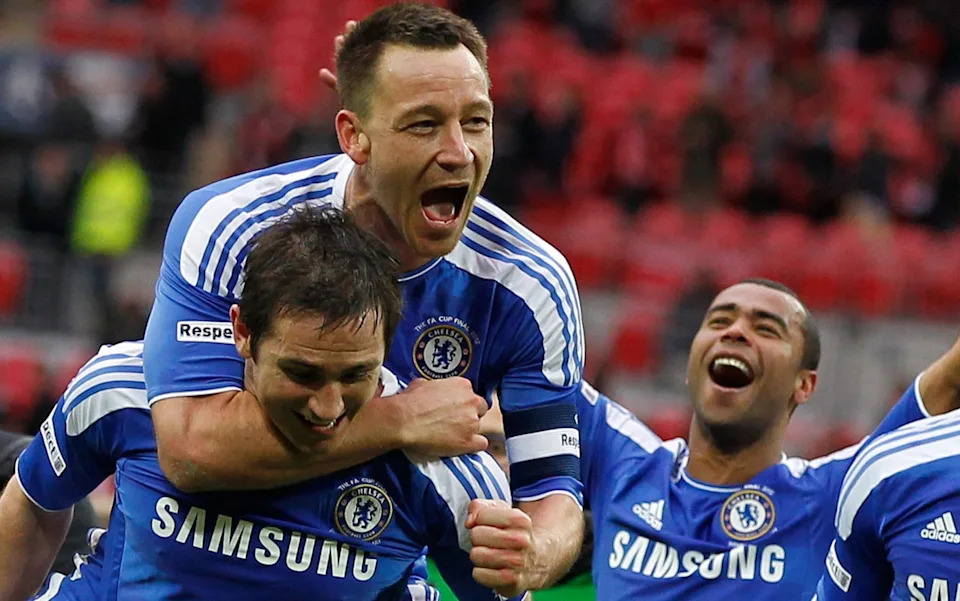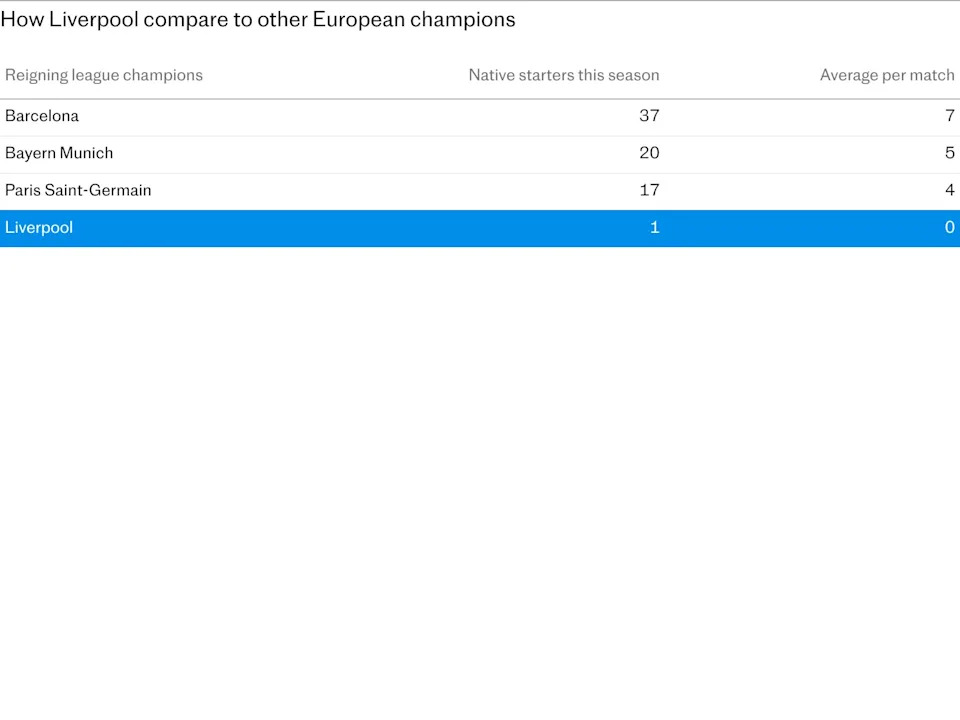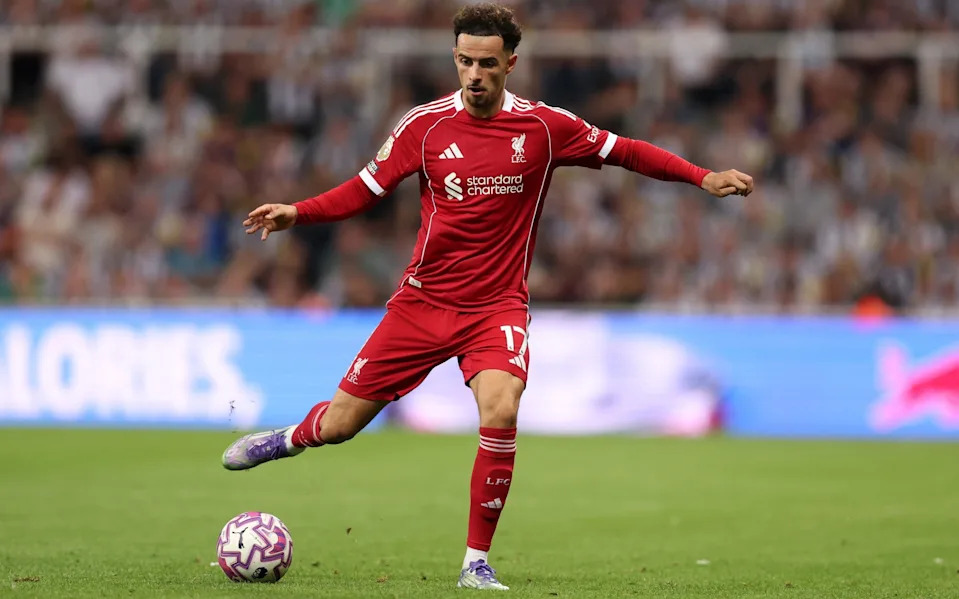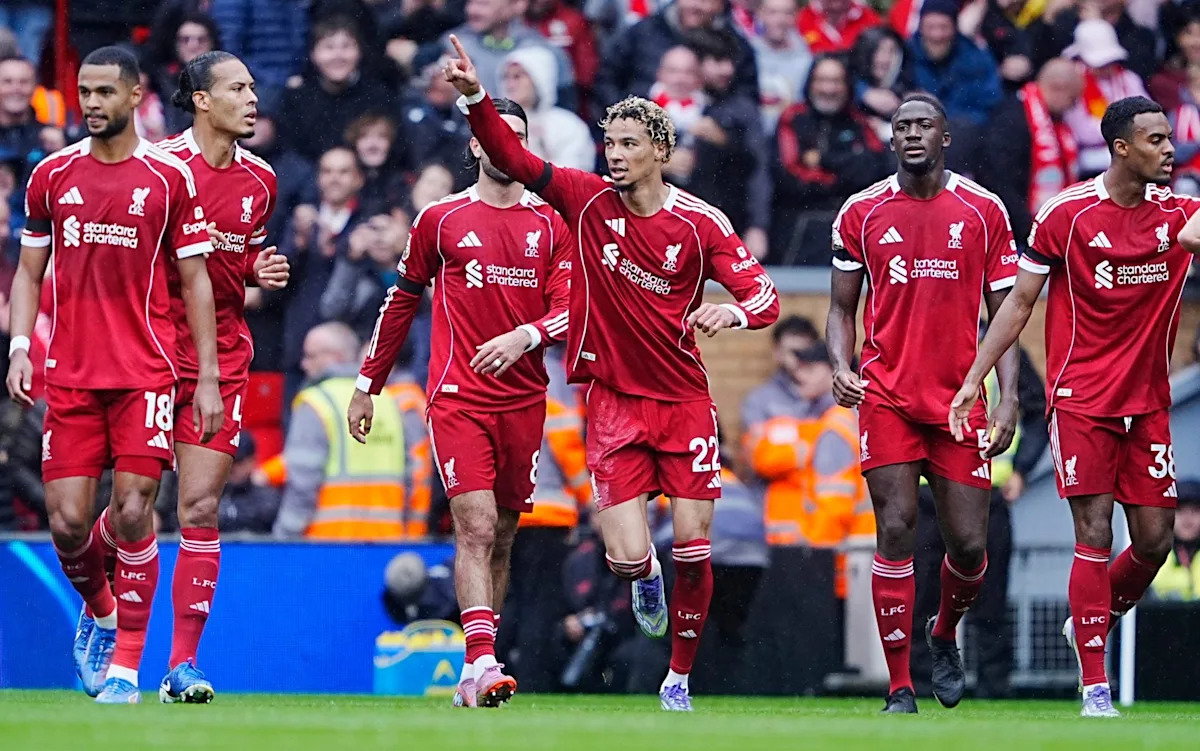There is already an ominous look to the Premier League table for anyone hoping to knock Liverpool off perch 2.0. They are five points clear already, the sort of lead which has been decisive in recent seasons, and as reigning champions it is no stretch to call them the best side in the country. But does it matter if England’s top team are not starting any English players?
Arne Slot’s title defence to date has been built on a first-choice starting XI without an Englishman. Alisson Becker (Brazil) is undisputed No 1, with Virgil van Dijk (Netherlands), Ibrahima Konaté (France), Milos Kerkez (Hungary) and either Jeremie Frimpong (Netherlands) or Conor Bradley (Northern Ireland) making up the back four.
Advertisement
Ryan Gravenberch (Netherlands), Alexis Mac Allister (Argentina), Mohamed Salah (Egypt), Dominik Szoboszlai (Hungary), Cody Gakpo (Netherlands) and Hugo Ekitike (France) started ahead of them against Everton on Saturday. Likely candidates to make that first XI soon are Alexander Isak (Sweden) and Florian Wirtz (Germany).
Most of the dynastical sides of the Premier League’s past 25 years have been heavy on overseas players, but maintained a nod to Englishness. Adams, Parlour and Cole at Arsenal; Terry, Lampard and Cole again at Chelsea; Rooney, Neville and Carrick at Manchester United; Walker, Stones, and Sterling at Manchester City.

John Terry, Frank Lampard and Ashley Cole formed an English core during Chelsea’s period of dominance – Getty Images/Ian Kington
Who might emerge in this lineage for Slot’s Liverpool? Joe Gomez, Curtis Jones and Rio Ngumoha were the English contingent for the Merseyside derby, all three were on the bench. None looks likely to cement a starting berth anytime soon, but Jones was picked away at Newcastle in August and stayed on for 90 minutes.
Advertisement
Liverpool are not alone in prioritising overseas players in starting XIs. The league-wide average is 2.7 English starters per team. As of Monday, Sunderland and Wolves are level with Liverpool in naming only one English starter so far this season, all are averaging 0.2 per game.
At the other end of the table are Everton, with 32 English starters so far out of a maximum of 55, 6.4 per game. Newcastle are close behind on 31 starters after five games, but those are the only two sides currently averaging a majority English starting line-up.
This is at odds with the picture on the Continent. Bayern Munich, last year’s Bundesliga champions, have played four games with an average of five German starters, Paris St-Germain average 4.3 French starters per game and Barcelona, current holders of La Liga, are on 7.4 Spaniards in each starting XI. Number of World Cups and European Championships won by those three countries: 16. Number won by England: do you really need reminding?
b’

2309 How Liverpool compare to other European champions
‘
Advertisement
Clearly this is a suboptimal situation for Thomas Tuchel. Any England manager would prefer as much of their talent pool as possible to benefit from the best club managers, winning matches most frequently and competing in the most significant games. Again, the trend here goes beyond Liverpool, with an injury to Phil Foden meaning there was only one player in the last England squad from Liverpool, Manchester United and Manchester City: City’s James Trafford.
There is an argument that English players provide a link between fans and players, although Liverpool supporters may be less troubled by this than most given their indifference to the England team. That view is shared by the majority of Manchester United fans who would identify as club over country, although their record of always having an academy product in a match-day squad has often enshrined English representation in teams.

Curtis Jones is now the only Scouser in Liverpool’s first-team squad – Getty Images/George Wood
More notable for Liverpool is the lack of a local presence now that Trent Alexander-Arnold has joined Real Madrid. For years Steven Gerrard and Jamie Carragher were on hand to help any new arrivals understand that, while you must address the manager as “boss”, you can also use the word to describe something good. Now it is Jones alone carrying the baton for Scouse representation.
Advertisement
Of course it is possible for fans to relate to players born elsewhere and you could argue that the player/supporter bond is easier to forge these days with the direct link of social media. Maybe fans of the past had some stereotypical idea of themselves and their community in the way a local conducted himself on the pitch? In a more atomised world that common ground could be found elsewhere, a shared love of Under Armour tracksuits, perhaps, or using a mutually beloved song to soundtrack a TikTok video?
What is difficult to ignore is the increasingly global focus of the Premier League. It is no longer a league primarily for English people, as shown in everything from shirt sponsors to kick-off times to the 63 separate post-match interviews each manager must conduct with international broadcasters. In that context, it is no surprise when top teams ignore English players.
